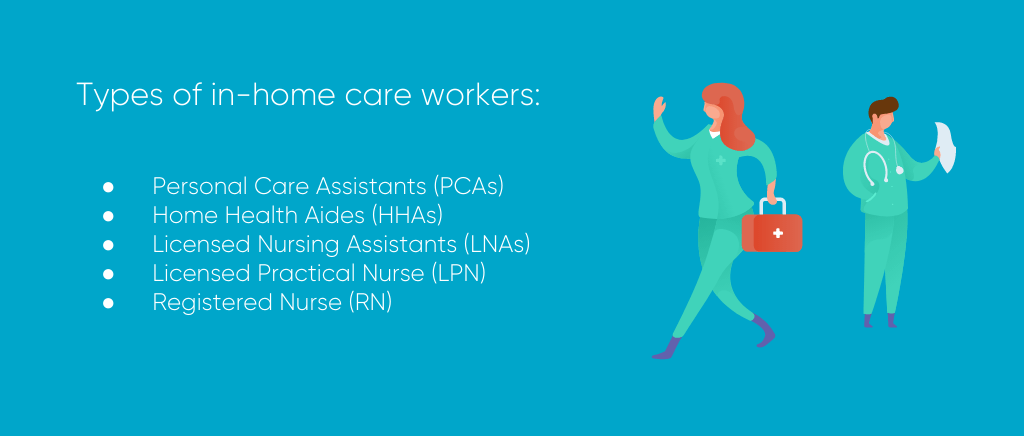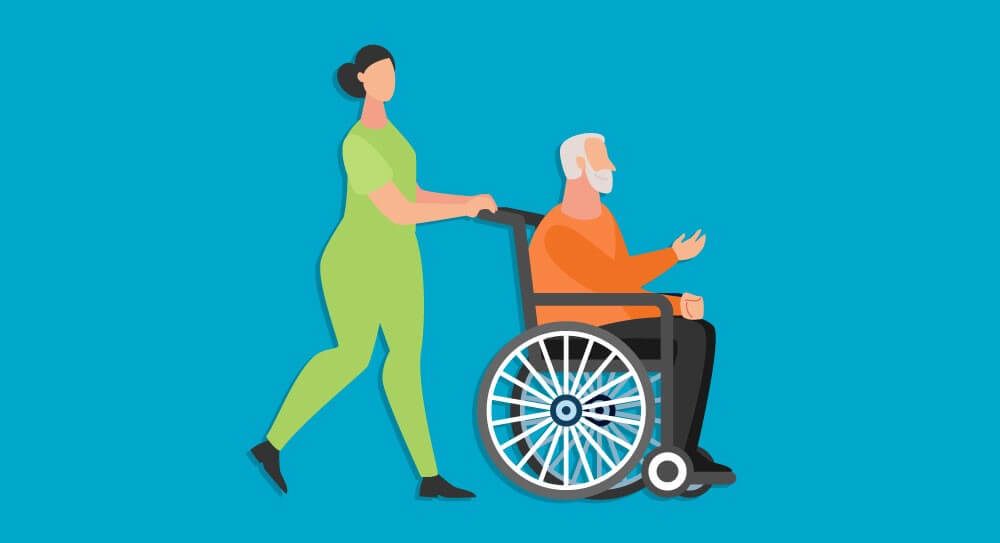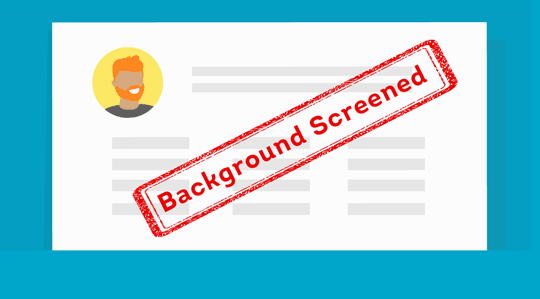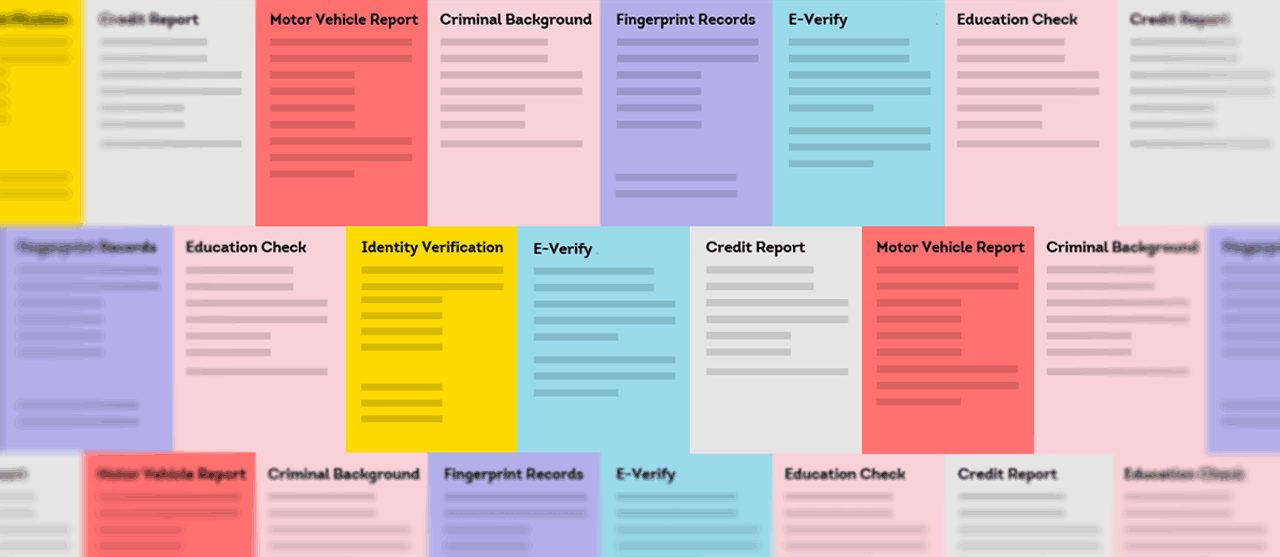Life moves quickly sometimes. One moment, you’re riding on the carousel; the next, you’re operating it. Before long, you’re sitting on a park bench watching the grandkids go for a spin on a pretty painted pony. Getting up there in age can come with a lot of great things in life, but it can also bring its share of challenges—especially for family members who are tasked with caring for an aging or disabled loved one.
Much of the American population provides regular care for chronically ill, disabled, or elderly loved ones. Providing such care is certainly a noble task, especially if the recipient has taken care of you in the past. However, it is a task that can also be incredibly challenging.
Taking care of an elderly loved one can cause stress and negatively impact your overall health. Many family caregivers who provide in-home care for family members or friends report higher levels of stress and burnout.
The strain of caring for an elderly family member or friend can seep into every part of your life, particularly when it comes to your work and professional endeavors.
The challenges of providing round-the-clock care to an aging family member can prove overwhelming, leading many families to seek out professional help. However, trusting a stranger to care for your aging parent, grandparents, or friends can seem just as daunting.
There are plenty of horror stories about what can do wrong in a caregiver situation; finding a trusted individual who can provide the appropriate level and type of care can be a challenge. When you hire a caregiver, you’re entrusting them with not only your loved one, but also your loved one’s home, and possessions. With all of these risks, it’s crucial that you find the right person for the job.
In addition to the tips listed below, it is absolutely essential to thoroughly vet all potential home health workers through a high-quality, comprehensive screening service like ShareAble® for Hires. Knowing that your top candidate has a clean criminal and financial record can make all the difference in feeling confident about leaving your aging parents or loved ones in their care.
Types of In-Home Caregivers
Before you jump into the hiring process, it helps to learn about the different kinds of caregivers that are available for hire.

The main types of in-home care workers include:
- Personal Care Assistants (PCAs)
- Home Health Aides (HHAs)
- Licensed Nursing Assistants (LNAs)
- Licensed Practical Nurse (LPN)
- Registered Nurse (RN)
These caregiver titles are distinct in that they have different job responsibilities and salaries. Here’s a brief summary of each type of home healthcare worker:
Personal Care Assistants (PCAs)
Personal care assistants mostly serve as helpers and companions to your elders. They are not qualified to provide a sophisticated level of medical attention, but they can still help out with very important household, hygiene, and personal health tasks.
Caregiver duties are not limited, but may include:
- Bathing
- Dressing
- Light housekeeping and meal prep
- Transportation
- Picking up prescriptions
- Conversation
- Accompanying your loved one on walks
It’s important to note that these duties are not standard among all personal care assistants. There may be some personal care assistants who don’t feel comfortable dressing or bathing your elder. PCAs don’t necessarily need to have driver’s licenses and they might not have cooking experience, either.
Personal care assistants are not licensed caregivers; their level of training and experience varies from one to the next. If you need a PCA that can perform particular tasks, you’ll have to tailor your hiring process to include the relevant skills, experience, and comfort level you’re looking for.
PCAs also tend to be the least expensive caregivers. According to the Bureau of Labor Statistics (BLS), the 2018 median hourly wage was $11.57 for PCAs. However, the market can vary significantly depending on your area.
Unfortunately, PCAs are often not covered by Medicare or by health insurance. They’re usually an out-of-pocket expense that’s paid for by the care recipient or by family members.
Home Health Aides (HHAs)
A home health aide can provide the same kind of care as a PCA. However, HHAs may need to acquire specialized training so they’re able to perform some health-specific tasks that PCAs might not be able to do.
In addition to assisting with daily living tasks, an HHA will be knowledgeable in:
- Checking your loved one’s vital signs
- Helping your loved one keep up with complex or particular diets
You might also elect to hire a home health aide for insurance purposes: some insurance providers will only grant coverage if you hire a licensed HHA, not a PCA.
You might be surprised to find that, in 2018, HHAs earned the same median hourly wage as PCAs: $11.57. Why would a caregiver with licensed skills make the same amount of money as an unlicensed caregiver?
It has to do with employment hours. Typically, PCAs are needed for fewer hours than HHAs are. A PCA might only work one or two days per week for a few hours at a time. An HHA might work longer shifts or visit more frequently. Of course, work hours and payment varies from case to case.
Licensed Nursing Assistants (LNAs)
If your loved one needs more intensive medical assistance, you might want to hire a licensed nursing assistant (also known as a “certified nursing assistant”). LNAs are licensed and trained professionals who can provide a variety of services for your loved ones that PCAs and HHAs cannot.
Duties of licensed nursing assistants may include:
- Checking vital signs
- Setting up medical equipment in the residence
- Changing dressings and catheters
- Monitoring infections
- Assisting with range-of-motion exercises
- Giving walking assistance

LNAs can administer certain treatments and physical therapy, but they generally don’t recommend or guide medical care. All medical-related tasks are usually directed by a registered nurse or physician.
In 2018, licensed nursing assistants earned a median hourly wage of $13.72. They may also be covered by health insurance providers and Medicare.
Licensed Practical Nurse (LPN)
A licensed practical nurse (LPN) is licensed on the state level and must also meet federal certification standards. LPNs typically can perform more advanced medical treatments and they can also offer a certain amount of medical guidance to you and your loved one.
You may want to hire an LPN if your loved one needs frequent medical attention at home. An LPN may be tasked with:
- Administering IV drugs
- Administering tube feedings
- Giving shots
- Changing wound dressings
- Providing diabetes care
Some LPNs are trained in physical therapy and speech therapy, as well.
In 2019, licensed practical nurses earned a median hourly wage of $22.83. Medicare does cover LPNs, so long as care is arranged by a Medicare-certified home health agency.
Registered Nurse (RN)
A registered nurse (RN) is the highest level of in-home care you can typically provide for your loved one. Registered nurses are highly trained and have either a nursing diploma or an Associate’s Degree in nursing. They also must have passed the NCLEX-RN exam or equivalent that’s administered by the National Council of State Boards of Nursing, as well as other licensing requirements.
Unlike other types of caregivers, a registered nurse can provide direct care for your loved one that includes:
- Assisting doctors in medical procedures
- Offering medical guidance to family members
- Operating medical equipment
- Administering/prescribing medication
In 2019, registered nurses earned a median hourly wage of $35.24.
Tips for Hiring a Caregiver
1) Determine the Level of Care Required for your Loved One
It’s important to determine what kind of care your loved one needs. Consider the following questions with the care recipient, and care professional, to determine what level of help might be needed:
- Does your loved one need personal care? For instance, do they need help with housekeeping, meal prep, dressing, or transportation? Do they need a companion to keep loneliness at bay?
If so, then how frequently do they need assistance? Daily? Weekly? How many times per week? And for how many hours?
- Does your loved one need medical care? Do they need help with exercise, diet, or administering of drugs?
If so, then how intensive are their medical needs? Do they need to have their vital signs checked yeah, once a week? Multiple times per day? Do they need medical equipment set up in their residence? Do they need medical guidance?
- Does your loved one feel comfortable with receiving in-home care?
Try not to force a caregiver onto your loved one. It’s important that you respect your loved one’s dignity, even if you know they’re definitely in need of in-home help. Talk with them about the benefits of having a caregiver and let them know they’ll have lots of input during the hiring process.
It’s helpful to take your loved one to a medical professional for caregiving advice. A doctor can provide guidance on what kinds of medical or personal assistance your loved one needs, and they might be able to make caregiver recommendations, which can remove some of the burden from your shoulders.
2) Create a Budget
Once you’ve determined what type of caregiver your loved one needs, compare the caregiver costs with the amount that you and/or your loved one are realistically able to spend.
If the type of caregiver you need is included in your health insurance or Medicare, then be sure to contact your providers to get an estimate on how much they’ll be able to cover. The amount of insurance money you have available may determine how many hours your caregiver can work.
If your caregiver isn’t covered by health insurance or Medicare, you have a couple of options. First, consider upgrading to the next level of care. For example, if your insurance provider won’t cover HHAs, but they’ll cover LNAs, it might be more cost-effective for you to pay for an LNA with coverage rather than paying for the full costs of an HHA out-of-pocket.
You could also potentially pay for long-term care insurance. Long-term care insurance includes caregiver costs that aren’t covered by health insurance or Medicare. Most long-term care insurance plans provide coverage for in-home caregiving.
Paying for a caregiver may also make you eligible for certain tax benefits, such as the Tax Credit for Elderly Dependent Care and the Medical Care Tax Deduction. These deductions may save you a significant amount of money when you file your annual tax return.
3) Decide Whether to Hire from an Agency or Registry
Many caregivers are associated with either an agency or a registry. When you hire from an agency, the agency will automatically provide you with one of their contracted caregivers. A registry, on the other hand, contains a list of verified caregivers and it’s up to you to contact them to conduct your own hiring process.
Agencies and registries each have their own pros and cons.
Hiring from an agency
There are typically a number of benefits to hiring from an agency:
- Caregivers are pre-screened
Agencies pre-screen all contracted caregivers to verify their training and employment history.
- Caregivers are trained and experienced
Agency caregivers are usually very qualified and experienced.
- Agencies can assign replacements quickly
Because agencies have a long list of contracted caregivers, they can easily send a substitute caregiver (if so desired) in the event that your caregiver is sick or unavailable. If your caregiver doesn’t jive well with your care recipient, an agency will easily be able to assign a new caretaker.
- Mediation
Agencies can professionally mediate any conflicts or concerns that are brought up by you, your loved one, or the caregiver.
- Easy upgrades
If your loved one needs more attention or medical assistance, it’s easy to upgrade to a more skilled caregiver.
- Minimal paperwork
There’s less paperwork for you to do when you hire a caregiver from an agency. You don’t have to negotiate a contract and you won’t have any payroll or tax responsibilities.
- Liability protection
You’re protected from liability if a caregiver is injured on the job.
However, there are also some frequent downsides to hiring from an agency:
- Expensive
Hiring from an agency can be more expensive than hiring from a registry.
- Little negotiation
When you hire from an agency, you have little control over caregiver contracts, so you might not be able to get the highly personalized care that your loved one needs. Agencies are most restrictive when it comes to working hours. Many agencies do not allow their caregivers to provide part-time care. If your loved one needs care for just a few hours each week, it might be best for you to hire from a registry.
- Little choice over caregiver
When you hire from an agency, you’ll have little control over who’s assigned to be your loved one’s caregiver. It’s harder to find the perfect match, as you’re mostly dependent on luck.
Hiring from a registry
Local and state registries will have lists of available caregivers in your area. Although hiring on your own through a registry is a more involved process, there may be numerous benefits to it:
- Flexible contracts
When you hire from a registry, you’ll be able to negotiate a contract with a caregiver directly. You can set the working hours for your caregiver, which is both a financial and pragmatic benefit to you and your loved one.
- Less expensive
You don’t have to pay high agency fees when you hire from a registry. With fewer additional fees, you might have the budget to cover the costs associated with a more experienced caregiver.
- You can find a caregiver that you trust
One of the best things about hiring from a registry is that you’re able to hire a caregiver that you and your loved ones and trust.
- You can control the employment screening process yourself
If you hire from a registry, then you have full control over the employment screening process. This way, you can see criminal, financial, or personal history for yourself and make your own informed judgments about your loved one’s caregiver.
The disadvantages to hiring from a registry may include:
- No quick replacements
If your caregiver is unavailable, you might not have an immediate substitute. If you terminate a caregiver, you’ll have to go through the hiring process again to find a new one.
- More complicated process
Hiring a caregiver from a registry is a longer and more complicated process than hiring from an agency, as you must interview and screen the candidates yourself. This means more paperwork and requires more organization.
4) Find and Interview Candidates
If you’re going to hire from a registry, you can find your state’s registry or even a local registry online. These registries will have extensive lists of caregivers that include caregiver contact information and other relevant information, such as areas of expertise. As you look through these lists:
- Make a list of possible candidates and contact them to set up a time to talk
- Call each candidate and conduct a phone interview to get a feel for their personality and experience

After you’ve called all the candidates on your list, it’s time to begin in-person interviews. Meet with your caregiver candidates in whatever setting you and your loved one find most comfortable. It’s important that your care recipient takes part in each interview, if possible. Also, you should consider consulting your legal counsel or other legal resources with respect to questions permitted under applicable law.
There’s a variety of questions you can ask each candidate, which can be sorted into three main categories:
- Experience Questions
- Behavioral Questions
- Hypotheticals
Experience questions
Experience questions give insight into whether or not your candidate is the most qualified person for the job. Examples of these types of questions might include:
- What skills do you have that qualify you for this job?
- What experience do you have working with Alzheimer's?
- Where were you trained?
- Can you perform CPR? Have you ever had to perform it before?
- How long have you been working as a caregiver?
Behavioral questions
Behavioral questions give you information about a candidate’s work ethic and personality. These types of questions include:
- Tell me about a time you faced a difficult patient and how you handled the situation.
- What are your career goals?
- Tell me about a mistake you made when treating a client. How did you handle it?
- What do you find most rewarding about working with this population? Most challenging?
Hypotheticals
Hypothetical questions let you know about a candidate’s intuition and critical thinking skills. They may even shed light on their level of training and experience. These types of questions include:
- What would you do if my loved one refused to take their medicine?
- What would you do if my loved one started to yell at you?
- Walk me through a typical morning when you’re providing care
Additional questions
As you decide whether or not you can trust a caregiver with your loved one, you’ll want as much information as possible about their personality, work ethic, past experience, and temperament. Here are some additional pre-screening questions you could ask:
- What skills can you bring to the table that other caregivers can’t?
- What would you change about your previous job? What wouldn’t you change about it?
- Do you know how to prepare food while abiding by special diet requirements?
- Do you have a driver’s license?
- Are there any tasks you’re uncomfortable performing?
- Can you provide references from similar jobs in the past?
Remember to let your care recipient ask any questions they wish. Also, remember to treat these interviews just like any other job interview you’d partake in. Caregiving is a job that requires a huge amount of patience, trust-building, and compassion, but it’s a job nonetheless. Don’t be afraid to ask tough questions and to vet each candidate thoroughly.
5) Screen Candidates
After interviewing and finding a candidate you trust, it’s imperative to check your candidate’s references and run a thorough background check. After all, you’re entrusting a stranger with the care of a loved one and allowing them to enter your home—usually unsupervised. You need to be sure that they are who they say they are and that you can trust them.
You might think that you are a good judge of character or you can trust your gut during interviews. However, elder abuse is an unfortunate reality, and it’s important to thoroughly vet every caregiver.
The importance of running a comprehensive background check to find a trusted, qualified elder care cannot be overstated. Without one, you and your loved one may be subject to fraud, theft, or even worse.
6) Draft a Personal Care Agreement
If your preferred candidate’s references check out and they pass the background check, it’s important to draft a personal care agreement with your caregiver before the care relationship begins. The agreement should outline your caregiver’s:
- Wages
- Work hours
- Responsibilities
- Contract length
- Sick days
- Vacation days
Consult your legal counsel or other legal resources to ensure you adhere to applicable laws. You should consider putting all agreements in writing and stipulating key items like the starting date and any actions that constitute grounds for termination. Be prepared for the caregiver to negotiate terms and conditions with you. Generally, both of you should sign the contract. Make copies and provide one to your caregiver. Keep all other documentation for your own records.
7) Managing Your Caregiver
Consult your financial and/or legal advisor to help ensure you are complying with applicable law since when you hire a caregiver, you could be hiring an employee. With employees, you’ll typically have payroll and tax responsibilities to perform but these are manageable if you stay organized.
Some of your employer responsibilities (check laws applicable to you) may require that you:
- Register with the IRS to get an Employer Identification Number
- Register with your state to get a state tax identification number
- Get workers’ comp or disability insurance
- File USCIS Form I-9 (this must be completed before your caregiver’s first day of work)
- Complete Form W-4 for the IRS
- Complete Form W-4 for your state (not all states have an income tax)
You may also have payroll responsibilities:
- If there’s a particular way you’d like your caregiver to perform tasks, then be sure to train your caregiver on how to perform them to your liking
- Determine whether your pay period is daily weekly, bi-monthly, or monthly
- Determine how your employee will record and report hours
Finally, these are your tax responsibilities when hiring an in-home caregiver:
- Withhold Medicare and Social Security taxes from your caregiver’s paychecks
- Pay Federal Unemployment Taxes
- Pay State Unemployment Taxes (if they’re levied by your state)
- Pay Federal Income Tax (filed once per year)
- Pay State Income Tax (paid on a quarterly basis)
- Withhold any income taxes from your caregiver’s paychecks (stipulated on their W-4) and pay to Federal and/or State tax authorities
It’s important that you keep accurate financial records of your caregiver’s engagement:
- You may be asked for documentation if you’re audited by the IRS
- Your caregiver expenses may qualify you for Medicare if you haven’t already qualified
- You should never pay a caregiver under the table. In addition to possible tax fraud, you could face a devastating lawsuit if your caregiver is injured and you don’t have the required workers’ comp or disability insurance.
If you’re a little overwhelmed by such administration responsibilities, it might be best for you to enlist a payroll service.
Once you finally have a caregiver in the door, make sure that they’re doing a good job and that your loved one is happy with the care they receive. When you hire a caregiver, you’re not just managing their engagement—you’re also managing your loved one’s well-being and happiness.
Visit your loved one each week while the caregiver is not around and make sure their needs are being met. Additionally, you can evaluate installing security cameras in your loved one’s home or you can make the occasional unannounced visit to inspect your caregiver’s work. However, be sure to follow federal, state, and local regulations involving different types of home surveillance.
Help Find Great In-Home Care with Comprehensive Employee Screening
Finding trusted caregivers can be a daunting task, but it’s far from impossible. Although it may be hard to consider trusting a stranger with the care of an injured or infirm loved one, you can feel more confident about your home healthcare worker with comprehensive screening through ShareAble for Hires.
Created specifically for people who don’t screen much at all ShareAble for Hires delivers legal, comprehensive screening that delves deep into a job candidate’s personal, financial, and even criminal history. Backed by TransUnion, a major national credit reporting bureau, you can feel confident that the reports you receive are trustworthy and reliable.
Affordable, customizable background checks help provide the critical information you need to know before bringing healthcare workers into your home. With a criminal record search, you can compare your applicant’s information to multiple state and federal databases and see if there is any history of felonies or misdemeanors that could potentially put your loved one at risk.
A detailed credit check can help provide you with insight into your candidate’s work history, past bankruptcies, outstanding loans, or other money situations that could open up your loved one to potential financial exploitation. Adding in identity verification can also help confirm that your applicant is who they say they are, which can reduce the risk of identity theft. ShareAble for Hires provides easy-to-read results you can trust in just minutes, which helps to make these tough decisions that much easier. As a reminder, always check federal, state, and local laws applicable to you and your engagement of a candidate. And please note the information contained in this material is neither legal advice nor medical advice and is not represented to be complete information or all information that should be considered.
On the spinning carousel of life, things can sometimes get a little bumpy. Get the in-home healthcare help you need and get back to enjoying the ride with ShareAble for Hires. Sign up for a free account and start screening today.




